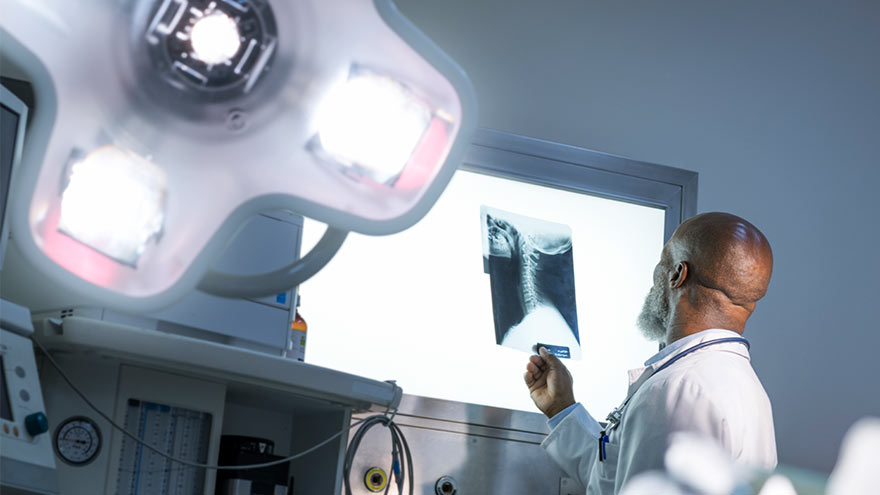Buscar
-
Navigating Renowns Cancer Care Resources Your Essential Guide
Cancer is challenging, but no one has to go through it alone. Patients and their loved ones can navigate the journey towards healing and recovery with the proper support and resources from Renown Health. When faced with a cancer diagnosis, access to reliable and comprehensive cancer resources is key. These resources provide vital information, support, and guidance for patients, caregivers and loved ones throughout cancer treatment and recovery. Cancer Resources Breast Cancer Newly Diagnosed Orientation Class Cancer Support Groups Caregiver Support General Cancer Support Group Lymphedema & Physical Therapy Men’s Prostate Cancer Support Group Newly Diagnosed Breast Cancer Workshop Smoking Cessation Spiritual Center Activities & Programs Sterling Silver 55+ Club Facebook Group At Renown and in collaboration with community partnerships, we offer a variety of resources and specialty care programs focused on improving the quality of life after cancer including: Cancer support groups play a crucial role in providing emotional, psychological, and practical assistance to those affected by cancer These groups often consist of individuals who have been through similar experiences and can offer guidance, empathy, and understanding. They provide a safe space for individuals to share their feelings, concerns, and experiences with others who truly understand what they are going through.
Read More About Navigating Renowns Cancer Care Resources Your Essential Guide
-
Head, Neck and Oral Cancers: How You Can Spot and Treat Them
Head, neck and oral cancers account for just 3 percent of all cancer in the U.S. and can be hard to diagnose. Dr. Abhinand Peddada, radiation oncologist with the Renown Institute for Cancer, explains. While you likely don’t frequently hear about head, neck and oral cancers — they are significantly less common than many kinds of cancer — they can be extremely dangerous. One of the primary reasons: some symptoms mimic the common cold, making them difficult to detect without a medical professional. We asked Abhinand Peddada, M.D., radiation oncologist with the Renown Institute for Cancer, to break down the symptoms and lifestyle risks of these rare cancers. First off, what are some of the signs and symptoms of head, neck and oral cancers? Symptoms can vary based on where the cancer is. For example, throat cancer may show up as a persistent sore throat, while sinus cancer may present as soreness or pressure in the sinuses that doesn’t get better. Some other symptoms to watch may include: Swelling in the throat Painless swelling in the neck Red or white patches in the throat Hoarseness Bloody noses or blood in the mucus or saliva A new and unexplained lump or bump anywhere on the face, neck, mouth or throat Difficulty breathing Difficulty swallowing, chewing or moving the muscles in your face, neck, mouth or throat Bad breath, even with good oral hygiene Loose teeth Dentures or retainers that no longer fit Double vision Who is most at risk for head, neck and oral cancers? Both men and women can develop head, neck and oral cancers, but men are at almost twice the risk of women. People over the age of 40 are also at a higher risk, and these cancers tend to be more common in African Americans. Tobacco use — including cigarettes, cigars, pipes and chewing tobacco — is another risk factor. Tobacco is linked to 85 percent of head and neck cancers. Exposure to fumes and chemicals can increase your risk as well. We’re also seeing more HPV-related head and neck cancers in the U.S., so patients with HPV may want to watch more closely for symptoms. What about screening and prevention? Your dentist already looks for signs and symptoms at your regular dental checkups. Additionally, if you have one of these risk factors and are experiencing signs and symptoms, it’s a good idea to check with your doctor about possible screenings. To help prevent these types of cancers, try to minimize your controllable risk factors. This means quitting tobacco, watching your alcohol consumption and taking care of your oral hygiene by brushing and flossing regularly. We also recommend the HPV vaccination for both boys and girls starting at age 11. By vaccinating at an earlier age, one is less likely to develop oral HPV. What do diagnosis and treatment look like for these cancers? At Renown Institute for Cancer we offer the most advanced diagnostic testing available including fiberoptic photos, CT and PET scans, as well as MRIs. Together, you and your care team will decide which treatment best fits your needs. For these types of cancers, treatment options include radiation, chemotherapy and surgery. Renown Institute for Cancer | 775-982-4000 At the Renown Health Institute for Cancer, our experienced team provides the support and care to maintain the highest quality of life and then achieve the best possible outcome, all in one location that’s close to home. Our dedicated team, clinical expertise and advanced treatment options allow us to tailor care to each patient. Learn about: Our Team Cancers We Treat Screening and Prevention Treatment Options Find a Cancer Doctor
Read More About Head, Neck and Oral Cancers: How You Can Spot and Treat Them

